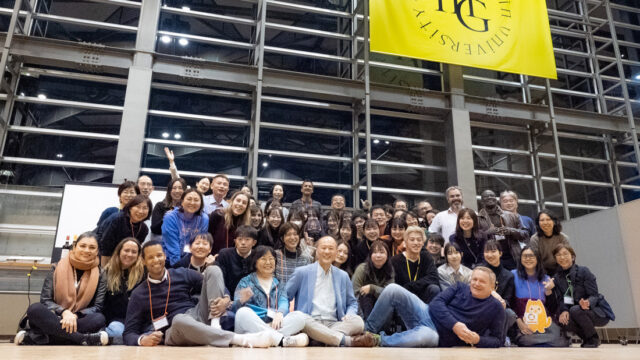GPBS TOKYO 2023 Report -Exploring Pro Bono Innovation through Student Participation and Academic Collaboration-04/03/2024
Exploring Pro Bono Innovation through Student Participation and Academic Collaboration
Saturday, December 2, 2023, 13:00-18:00
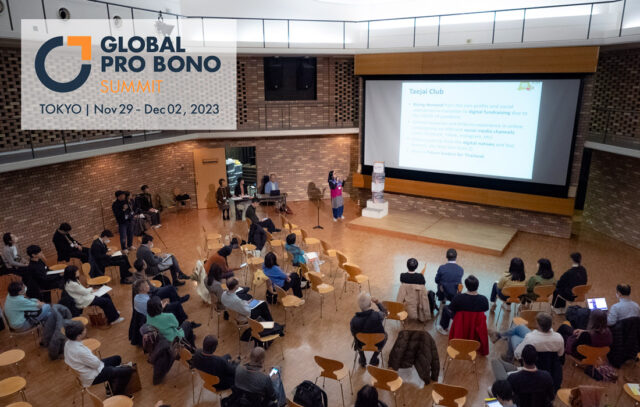
Venue: Meiji Gakuin University (Shirogane, Tokyo)
The “Global Pro Bono Summit TOKYO 2023” Future Session “Creating the Future, Innovative Forms of Pro Bono” was held on Saturday, December 2, 2023, under the theme of “Student x Pro Bono” collaboration, focusing on models from around the world that lead to investment in future society. The event was conducted. The following is a report on the short presentations given by all the speakers at the plenary session.
Table of Contents
Pro bono model with student participation in Southeast Asia: New challenges, new opportunities
Jia Chuan Kwok (Singapore/USA, Conjunct Consulting)
Ada Chirapaisarnkul (TYPN, Thailand)
Youth empowerment through pro bono work in Europe~Examples of EU Government and University Cooperation Programs in France~
Maria Carracedo (Pro Bono Lab, France)
Andrea Sanchez Angulo( Work for Social, Spain)
Toward the creation of an international network of pro bono and educational opportunities for young people and the creation of international exchange opportunities
Yang Jing, Beijing Pro Bono Foundation, China
Potential of Social Research: Interdisciplinary Collaboration between Social Science and Pro Bono
Hideki Ishihara (Meiji Gakuin University), Ikuma Saga (Service Grant)
Mina Lopezlugo (Pro bono Venture, Mexico)
Plenary Session
Pro bono model with student participation in Southeast Asia: New challenges, new opportunities
Jia Chuan Kwok (Singapore/USA, Conjunct Consulting)
Ada Chirapaisarnkul (TYPN, Thailand)
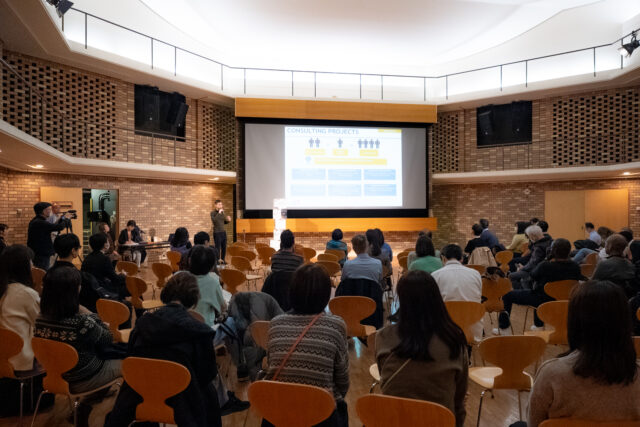
Conjunct Consulting’s mission is to strengthen the foundations of organizations in Singapore that are engaged in socially beneficial activities through pro bono work. We have a program in which students and professionals work as one team to help strengthen the infrastructure of Social Good Organizations. Working professionals provide support to students through training and interviews, while offering their expertise and skills in areas such as finance and marketing. The program takes 10 weeks or more to build a deliverable tailored to the needs of the organization. Students spend ample time supporting the organization and learning on their own, while spending more time than working professionals.
TYPN has been working with high school students, who are considered digital natives, for the past three years. The impetus came from the need to digitize fundraising in the Corona Disaster. We are now partnering with a crowdfunding company to offer a student collaborative program, selecting students who have the passion to participate for a year and providing bi-weekly reviews and public speaking training. The goal of the program is to enable the organizations we support to leverage crowdfunding and other resources.
Pro bono work can be a very effective tool for the growth of young people, especially in developing leaders. Those who participated as pro bono workers when they were students have since entered the workforce and are active as leaders of the next generation.
Youth empowerment through pro bono work in Europe
~Examples of EU Government and University Cooperation Programs in France~
Maria Carracedo (Pro Bono Lab, France)
Andrea Sanchez Angulo, Work for Social, Spain
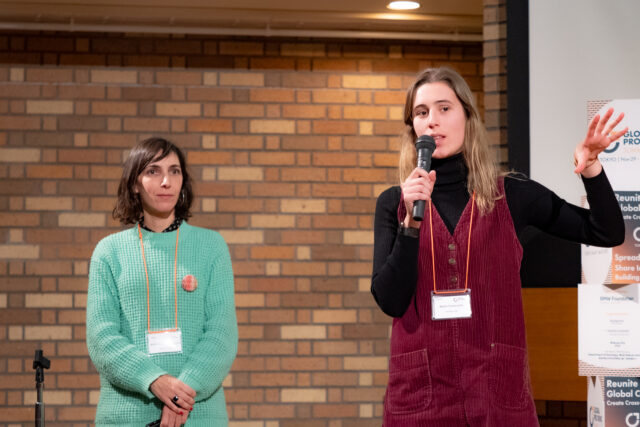
In Europe, there is a great deal of interest in youth employment. And pro bono work is recognized as a way to help improve the employability of young people, with numerous programs in place. For example, the BEESE program, together with the EU government, has implemented 15 pro bono projects in five countries over a three-year period, with approximately 150 participants. Participating students commented, “I learned more through these free projects than I did in theoretical classes at university. It was a great experience to put into practice what I have studied so far.” This was a great experience for me to put into practice what I have studied so far,” said one of the students.
Toward the creation of an international network of pro bono and educational opportunities for young people and the creation of international exchange opportunities
Yang Jing, Beijing Pro Bono Foundation, China
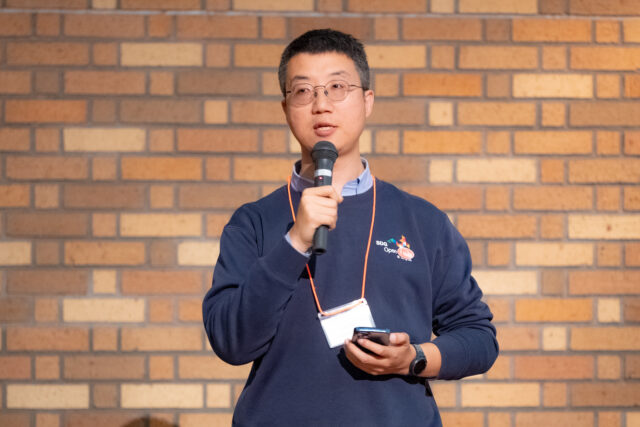
The Beijing Pro Bono Fund has created a pro bono training curriculum from the perspective that young people will be important in achieving goals such as the SDGs, and in fact, high school and university students are creating solutions to problems.
For example, students proposed ideas to traditional embroidery artists of the Yi tribe in southwestern China to disseminate information and revitalize Yi embroidery. Other programs for students throughout China include programs for autistic children and coffee farms in impoverished areas.
Potential of Social Research: Interdisciplinary Collaboration between Social Science and Pro Bono
Hideki Ishihara (Meiji Gakuin University), Ikuma Saga (Service Grant)
Mina Lopezlugo (Pro bono Venture, Mexico)
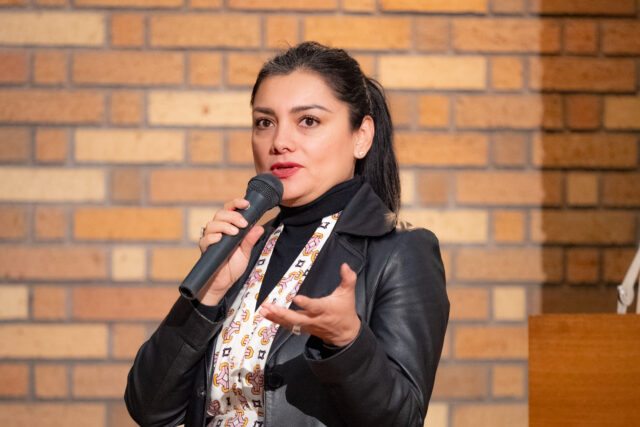
In 2022, Service Grants conducted a pro bono social action research program with professors from the Department of Sociology at Meiji Gakuin University, where pro bono workers and university students conducted social research on themes proposed by NPOs and provided reports. Some of the results were featured in the news.
Pro Bono Veture in Mexico spends a year researching, analyzing, and determining what kind of support and resources are needed and where they are needed. Pro bono and students are then involved to solve the issues and enhance the results.
Subcommittee
After short presentations by all the speakers, the participants joined in breakout sessions for each theme, where topics were presented from each country, followed by a question-and-answer session and discussion.
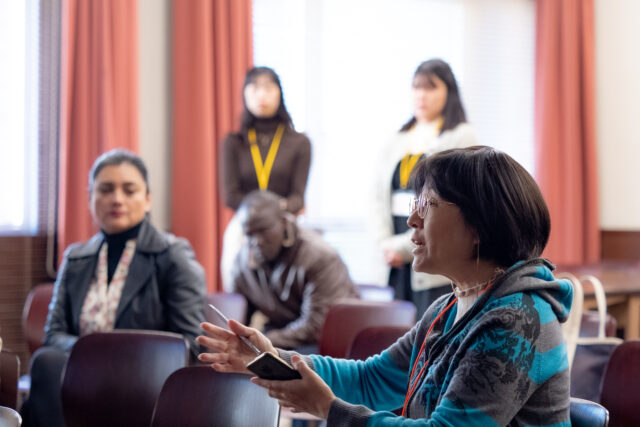
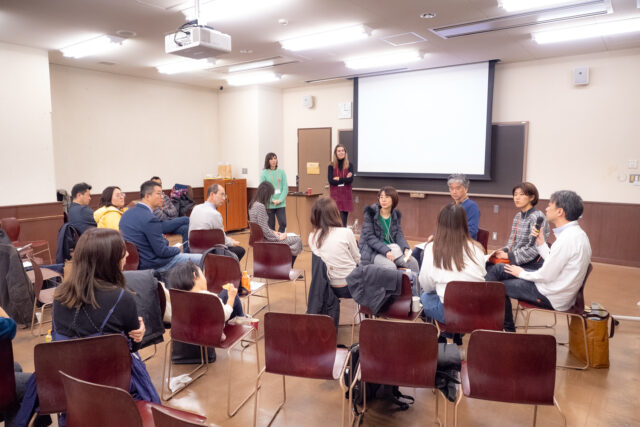
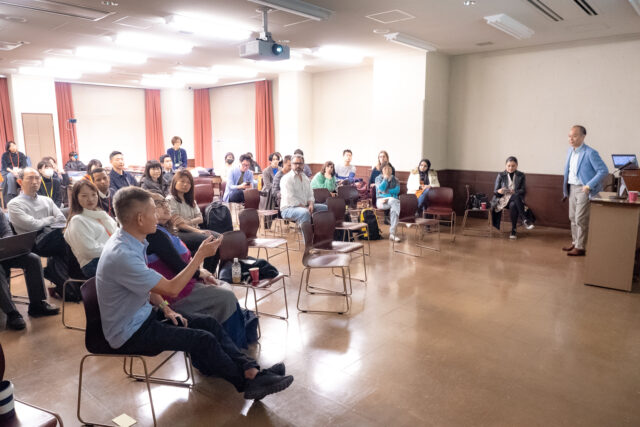
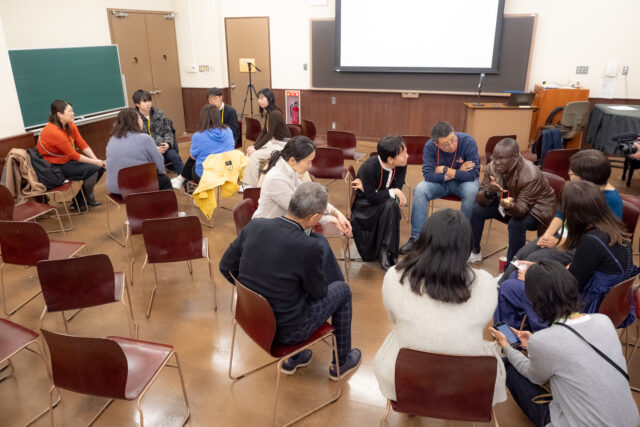
Sharing and exchange meetings
Global members and participants, along with students from Meiji Gakuin University, reflected on the sessions and exchanged ideas through chatting. The networking that was created across generations and borders is sure to lead to online exchanges and the evolution of new pro bono models after the summit.
